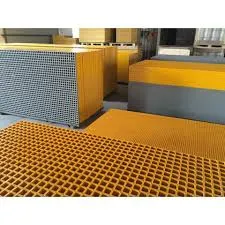
-
 Afrikaans
Afrikaans -
 Albanian
Albanian -
 Amharic
Amharic -
 Arabic
Arabic -
 Armenian
Armenian -
 Azerbaijani
Azerbaijani -
 Basque
Basque -
 Belarusian
Belarusian -
 Bengali
Bengali -
 Bosnian
Bosnian -
 Bulgarian
Bulgarian -
 Catalan
Catalan -
 Cebuano
Cebuano -
 China
China -
 China (Taiwan)
China (Taiwan) -
 Corsican
Corsican -
 Croatian
Croatian -
 Czech
Czech -
 Danish
Danish -
 Dutch
Dutch -
 English
English -
 Esperanto
Esperanto -
 Estonian
Estonian -
 Finnish
Finnish -
 French
French -
 Frisian
Frisian -
 Galician
Galician -
 Georgian
Georgian -
 German
German -
 Greek
Greek -
 Gujarati
Gujarati -
 Haitian Creole
Haitian Creole -
 hausa
hausa -
 hawaiian
hawaiian -
 Hebrew
Hebrew -
 Hindi
Hindi -
 Miao
Miao -
 Hungarian
Hungarian -
 Icelandic
Icelandic -
 igbo
igbo -
 Indonesian
Indonesian -
 irish
irish -
 Italian
Italian -
 Japanese
Japanese -
 Javanese
Javanese -
 Kannada
Kannada -
 kazakh
kazakh -
 Khmer
Khmer -
 Rwandese
Rwandese -
 Korean
Korean -
 Kurdish
Kurdish -
 Kyrgyz
Kyrgyz -
 Lao
Lao -
 Latin
Latin -
 Latvian
Latvian -
 Lithuanian
Lithuanian -
 Luxembourgish
Luxembourgish -
 Macedonian
Macedonian -
 Malgashi
Malgashi -
 Malay
Malay -
 Malayalam
Malayalam -
 Maltese
Maltese -
 Maori
Maori -
 Marathi
Marathi -
 Mongolian
Mongolian -
 Myanmar
Myanmar -
 Nepali
Nepali -
 Norwegian
Norwegian -
 Norwegian
Norwegian -
 Occitan
Occitan -
 Pashto
Pashto -
 Persian
Persian -
 Polish
Polish -
 Portuguese
Portuguese -
 Punjabi
Punjabi -
 Romanian
Romanian -
 Russian
Russian -
 Samoan
Samoan -
 Scottish Gaelic
Scottish Gaelic -
 Serbian
Serbian -
 Sesotho
Sesotho -
 Shona
Shona -
 Sindhi
Sindhi -
 Sinhala
Sinhala -
 Slovak
Slovak -
 Slovenian
Slovenian -
 Somali
Somali -
 Spanish
Spanish -
 Sundanese
Sundanese -
 Swahili
Swahili -
 Swedish
Swedish -
 Tagalog
Tagalog -
 Tajik
Tajik -
 Tamil
Tamil -
 Tatar
Tatar -
 Telugu
Telugu -
 Thai
Thai -
 Turkish
Turkish -
 Turkmen
Turkmen -
 Ukrainian
Ukrainian -
 Urdu
Urdu -
 Uighur
Uighur -
 Uzbek
Uzbek -
 Vietnamese
Vietnamese -
 Welsh
Welsh -
 Bantu
Bantu -
 Yiddish
Yiddish -
 Yoruba
Yoruba -
 Zulu
Zulu
FRP Desalination Systems and Components for Optimal Water Treatment Efficiency
FRP Desalination Pipes and Fittings for Efficient Water Treatment
In the face of increasing global water scarcity, desalination has emerged as a crucial technology to provide fresh water from seawater. As this method gains popularity, the materials used in desalination processes must be both efficient and durable. One such material that stands out is Fiber Reinforced Plastic (FRP), which has transformed the landscape of water treatment systems.
FRP is a composite material that combines plastic with reinforcing fibers, typically glass or carbon. This composition offers several advantages over traditional materials like metal and concrete. First and foremost, FRP pipes and fittings are exceptionally lightweight, making them easy to install and transport. This lightweight nature reduces the overall structural load and simplifies handling, which is particularly beneficial in marine environments where installations are challenging.
Another significant advantage of FRP in desalination is its remarkable resistance to corrosion. Given that desalination plants deal with highly saline water, the risk of corrosion in standard materials can escalate maintenance costs and reduce lifespan. FRP pipes and fittings, on the other hand, can withstand the harsh chemical environments found in seawater, thereby ensuring a longer operational life and lower maintenance needs.
frp desalination pipes and fittings for efficient water treatment

Moreover, FRP boasts excellent thermal insulation properties, which are vital in desalination processes that often involve temperature fluctuations. The insulation reduces energy losses when transporting water through the system, thereby enhancing the overall efficiency of the water treatment process. This energy efficiency can lead to significant cost savings, making FRP an economically sound choice for desalination plants.
The flexibility of FRP also allows for innovative designs in pipe and fitting configurations. Engineers can create custom shapes to fit specific installations, ensuring optimal flow and minimal resistance in the system. Additionally, the smooth interior surface of FRP pipes minimizes friction losses, which contributes to increased flow rates and overall efficiency in water treatment.
As the world continues to seek sustainable solutions to water scarcity, FRP desalination pipes and fittings stand out as a pivotal development. Their unique combination of lightweight construction, corrosion resistance, thermal insulation, and design flexibility makes them an excellent choice for modern water treatment facilities. Investing in these materials not only enhances the efficiency of desalination processes but also supports the broader goal of providing safe and reliable drinking water to communities around the globe. As we look to the future, the integration of FRP into desalination systems may very well be the key to unlocking a sustainable water supply for generations to come.
Latest news
-
Exploring the Benefits of Top Hammer Drifter Rods for Enhanced Drilling PerformanceNewsJun.10,2025
-
High-Precision Fiberglass Winding Machine for GRP/FRP Pipe Production – Reliable & Efficient SolutionsNewsJun.10,2025
-
FRP Pipes & Fittings for Shipbuilding - Corrosion-Resistant & LightweightNewsJun.09,2025
-
Premium FRP Flooring Solutions Durable & Slip-ResistantNewsJun.09,2025
-
Premium Fiberglass Rectangular Tanks Durable & Lightweight SolutionNewsJun.09,2025
-
Tapered Drill String Design Guide Durable Performance & UsesNewsJun.09,2025









